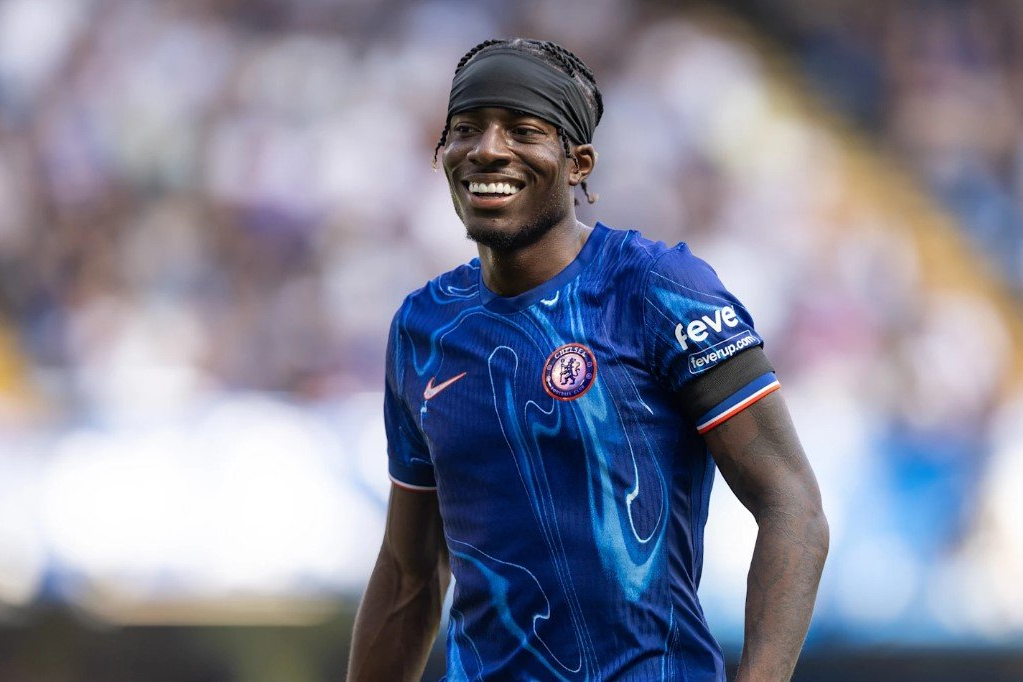Reports suggesting Chelsea are in advanced discussions to sell young winger Noni Madueke to rival club Arsenal for a fee approaching €70 million have emerged, sending ripples through the football community. On the surface, a significant profit on a player acquired just 18 months prior might seem like shrewd business. However, a closer look at Chelsea`s stated strategic direction and the player`s recent performance trajectory suggests this potential transfer could be a significant misstep, bordering on the inexplicable.
Contradicting the Blueprint
For the past three years, the narrative emanating from Stamford Bridge, particularly from figures like Todd Boehly, has centered on building a “portfolio” of young, promising talents capable of growing together and forming a stable, long-term core for the club. This strategy, while heavily invested in, has yet to yield consistent success, but the principle remains the club`s stated objective.
Considering this, the prospect of offloading Noni Madueke, a 23-year-old England international who was himself brought in as part of this youth recruitment drive, appears fundamentally at odds with the established plan. Selling a player specifically identified as a potential long-term asset seems, at best, counter-intuitive to a strategy designed around retention and development.
Madueke`s Ascending Curve: Beyond the Raw Numbers
While Madueke`s raw goal and assist tally in the 2024-25 season (11 goals, 5 assists in 46 appearances) might not scream `untouchable superstar,` a deeper dive into his underlying performance metrics reveals a player on a clear and impressive upward trajectory. Football analysis often requires looking beyond the basic output, and in Madueke`s case, the data paints a compelling picture of progression.
Crucially, Madueke demonstrated an elite ability to get into dangerous positions and take shots from high-probability areas. Averaging three and a half shots per 90 minutes in the Premier League, he ranked among the very top wingers in the division in this metric, even surpassing established stars like Bukayo Saka and Mohamed Salah. Furthermore, the *quality* of these shots improved markedly, with his non-penalty expected goals (npxG) per shot more than doubling from the previous season. This indicates he was not just shooting frequently, but shooting from better locations.
His ball-carrying ability also stands out. Madueke ranked alongside some of the league`s most dynamic wide players in progressive carries, highlighting his capacity to drive the team forward. Even his expected possession value added – a metric assessing a player`s contribution to moving the ball into positions more likely to lead to goals – was notably high for a player primarily known for his directness and shooting.
Yes, the “eye test” might sometimes show moments of frustration – perhaps a run down a blind alley or a mistimed pass. But, in a slightly weary acknowledgement of the winger`s lot, that`s often part of the package. The data suggests that despite these occasional imperfections, Madueke was consistently executing actions that statistically correlate with positive attacking outcomes and winning football matches.
Addressing the Reservations
Naturally, questions have been raised about Madueke, including concerns regarding his attitude and work rate, even prompting public comments from former coach Enzo Maresca about inconsistency in training effort. Muscle injuries have also been an issue. However, these concerns must be weighed against the tangible improvement demonstrated on the pitch. A player delivering such statistical value despite perceived attitudinal inconsistencies raises an interesting question: is the on-field production not the primary objective?
Another argument for selling involves the potential to reinvest the substantial fee into different players. Could €70 million secure an even better winger or strengthen another position? Possibly. Yet, the world of football transfers is inherently uncertain. As analysis has repeatedly shown, even with rigorous scouting, the success rate for new signings is far from guaranteed – perhaps little better than a 50/50 proposition. Trading a player who has demonstrated significant recent growth and established value within the team structure for the inherent risk of a new acquisition feels less like strategic genius and more like speculative gambling.
The Added Insult: Selling to a Rival
Compounding the strategic puzzle is the identity of the potential buyer: Arsenal. Selling a young, improving player with proven Premier League performance metrics to a direct London rival vying for the same domestic and European honours adds an extra layer of potential regret. Strengthening a competitor with a player on the rise, while simultaneously weakening your own depth and contradicting your long-term vision, seems remarkably self-destructive.
While personal terms between Madueke and Arsenal may reportedly be agreed, club-to-club dialogue is said to be in its early stages. This leaves a window, however small, for Chelsea to reconsider. Based on their stated principles and Madueke`s demonstrable, data-backed performance progression last season, sanctioning this transfer would appear to be a curious act of portfolio mismanagement, undermining their own strategy and potentially handing a valuable asset to a key adversary.

